Best Foods That Boost Your Memory After 40, Say Dietitians
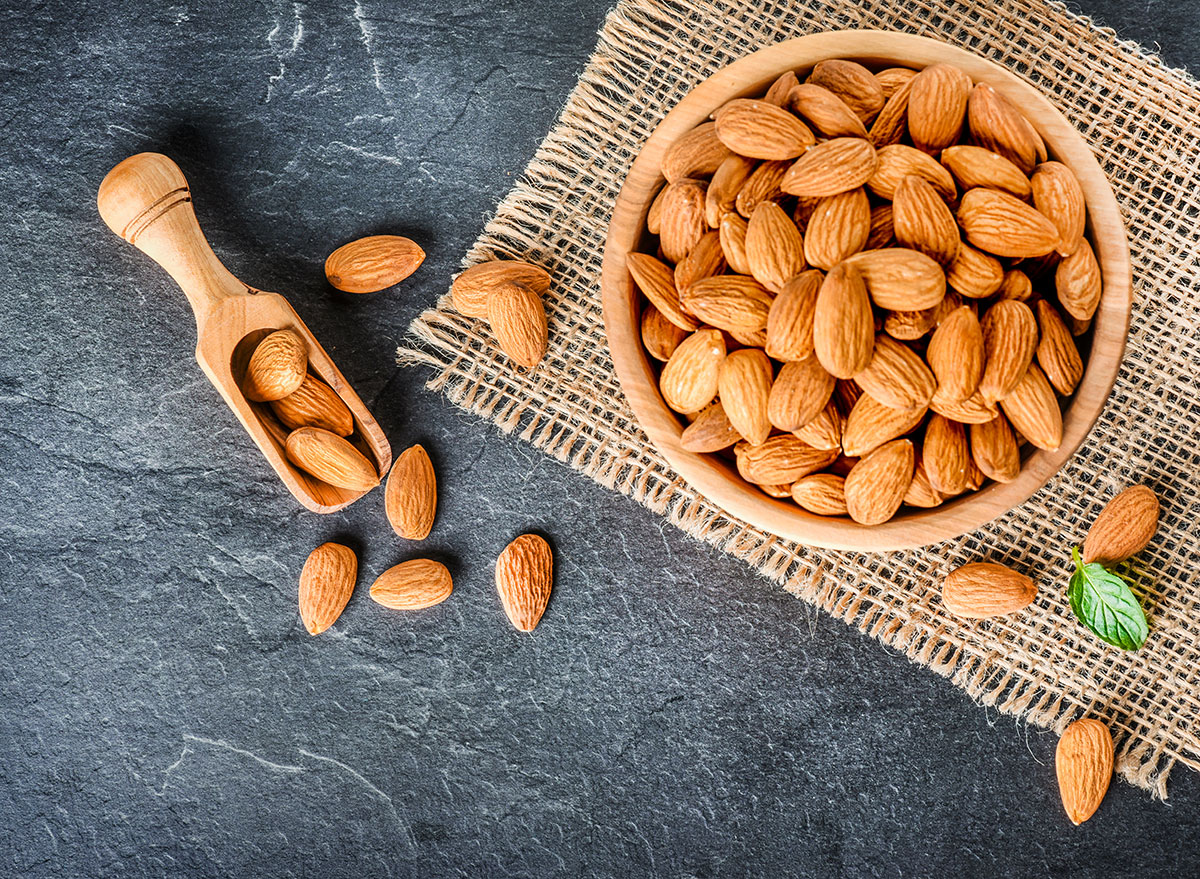
It's easy to think that we won't start to lose our memory until we are well into our 70s and 80s, but this simply isn't true. A 2012 study found that our cognition can start to decline as early as 45, and another study found that it can begin as early as our 20s or 30s!
There's no need to panic, though, because much of our cognitive health is determined by our eating and lifestyle habits. For example, we can boost our memory at any age by exercising regularly, getting enough sleep, reducing stress, and eating a healthy diet.
But how do we know which foods to eat when it comes to caring for our brain health? We spoke to a few expert dietitians to get their input on the best foods that boost your memory after age 40, along with some common ways to eat them. Read on to learn more, and for more healthy eating tips, make sure to check out The 7 Healthiest Foods To Eat Right Now.
Beets
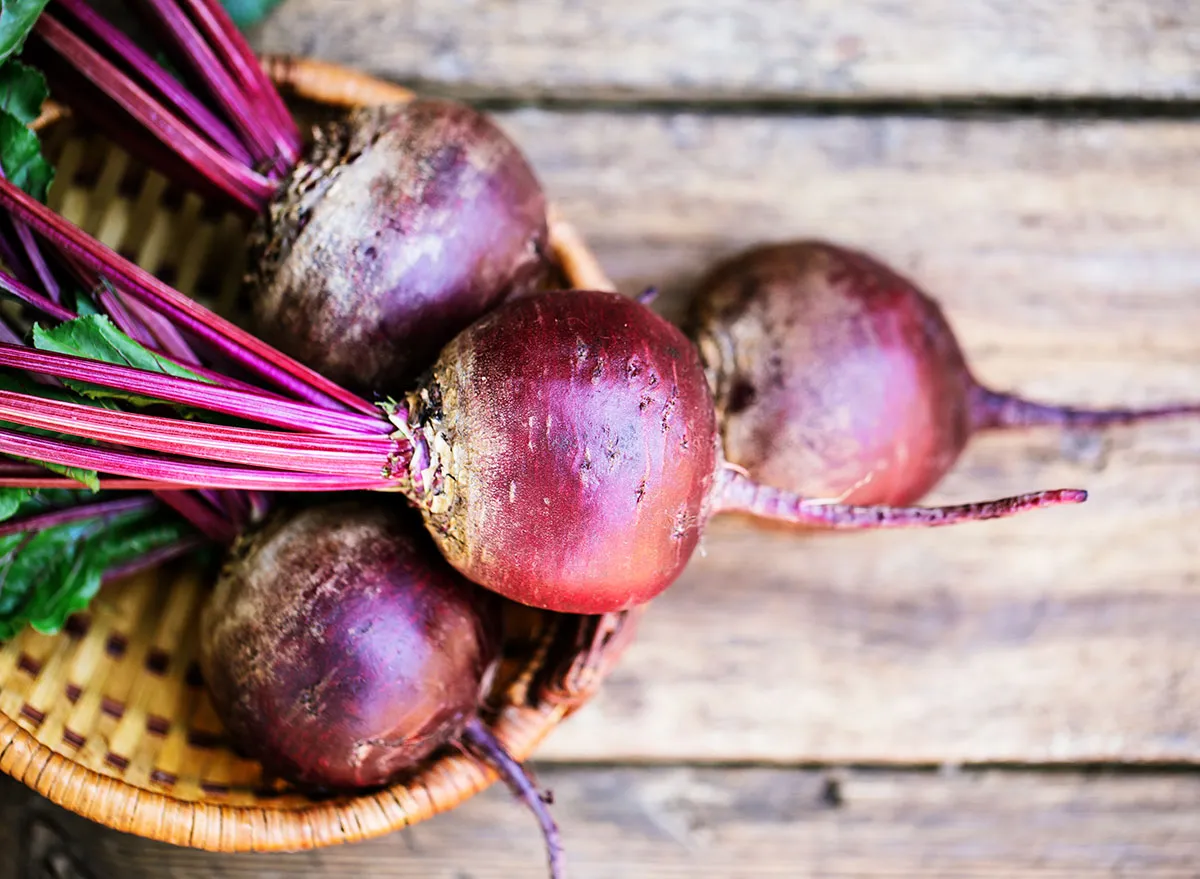
According to Nicole Stefanow, MS, RDN, beets are a great food to eat for an easy memory boost over the age of 40.
"Beets are rich in pigments called betalains, which help prevent premature brain aging and memory loss by protecting against oxidative stress and inflammation," says Stefanow.
If you're not sure about beets and need a creative way to cook them, try making this delicious roasted beet salad with barley!
Fatty Fish
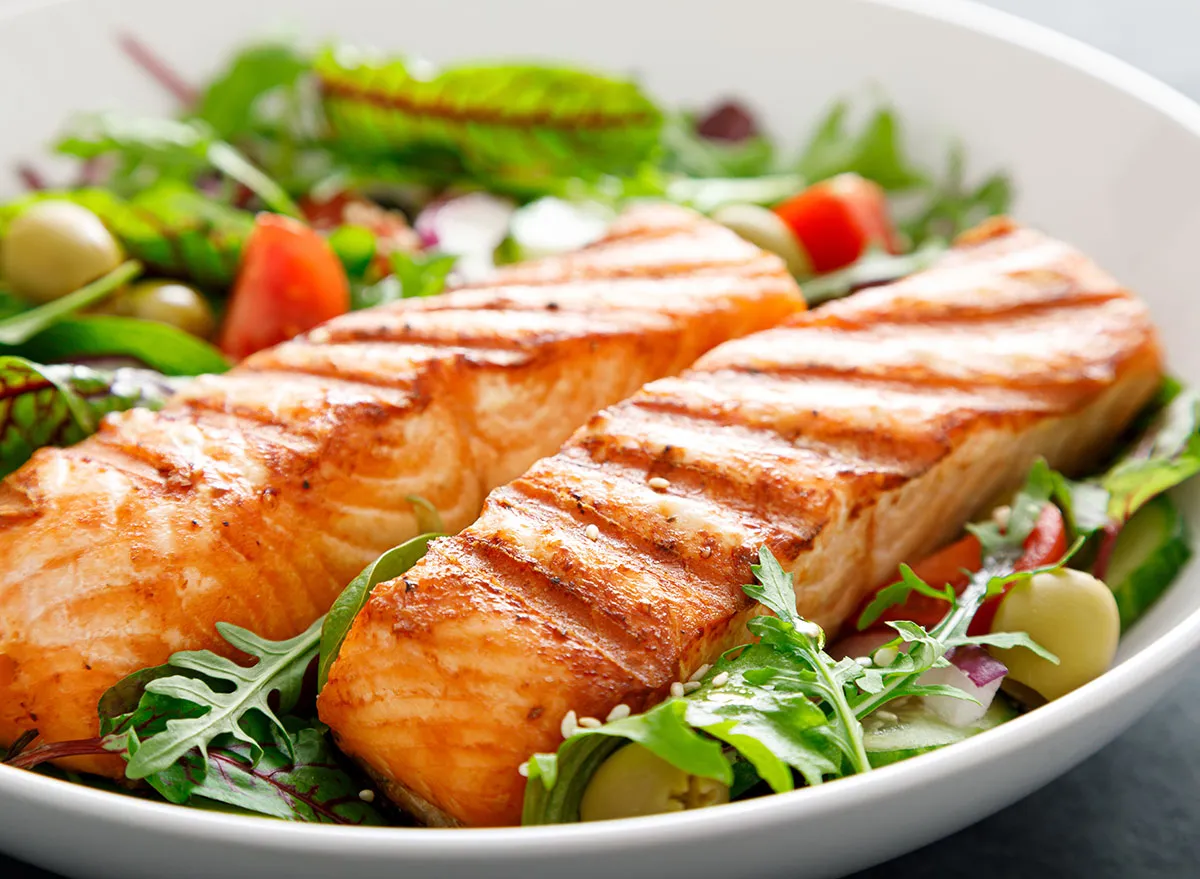
"The brain uses omega-3 fats to build brain and nerve cells, which are essential for learning and memory," says Amy Goodson, MS, RD, CSSD, LD author of The Sports Nutrition Playbook "For that reason, fatty fish full of omega-3s like salmon, trout, and albacore tuna are at the top of the list for brain health."
According to Rima Kleiner, MS, RD registered dietitian and blogger at Dish on Fish, salmon is one of the best sources of omega-3 fatty acids DHA and EPA. Kleiner says that "Omega-3s help improve cardiovascular, brain health and cognitive function, and EPA specifically helps to reduce inflammation in the brain cells."
Flax Seeds
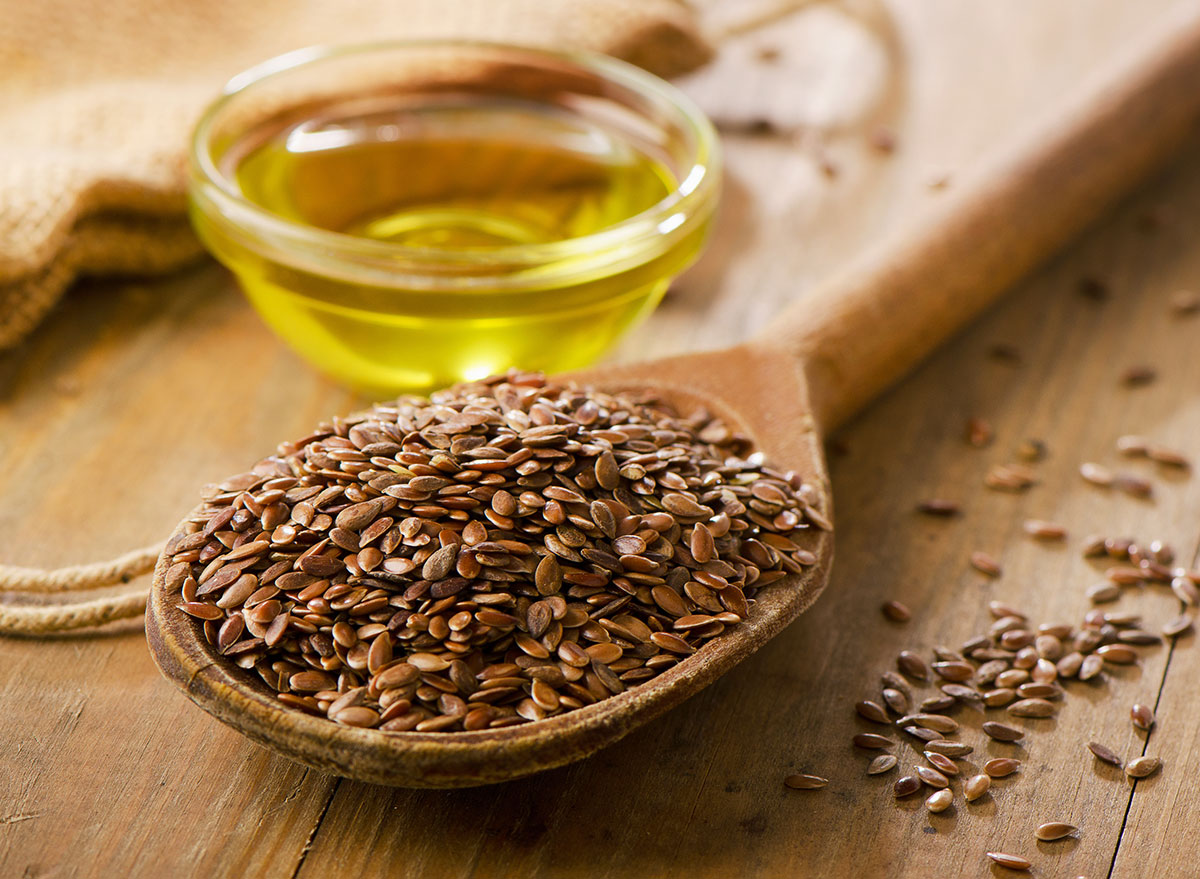
Flax seeds are not only a great source of protein and fiber, but they're apparently great for boosting your memory as well!
"Flax seeds are rich in a type of omega-3 fatty acid: alpha-linolenic acid (ALA)," says registered dietitian Rachel Fine, RD, owner of To The Pointe Nutrition. "ALA fatty acids convert in the body to EPA and DHA: two very important omega-3s for brain health," Fine adds.
Fine also mentions that you have to grind whole flaxseeds to digest them and gain their full health benefits. The good news is that you can make just about anything with ground flax seeds, like these healthy buttermilk pancakes or this creamy carrot cake smoothie.
Almonds
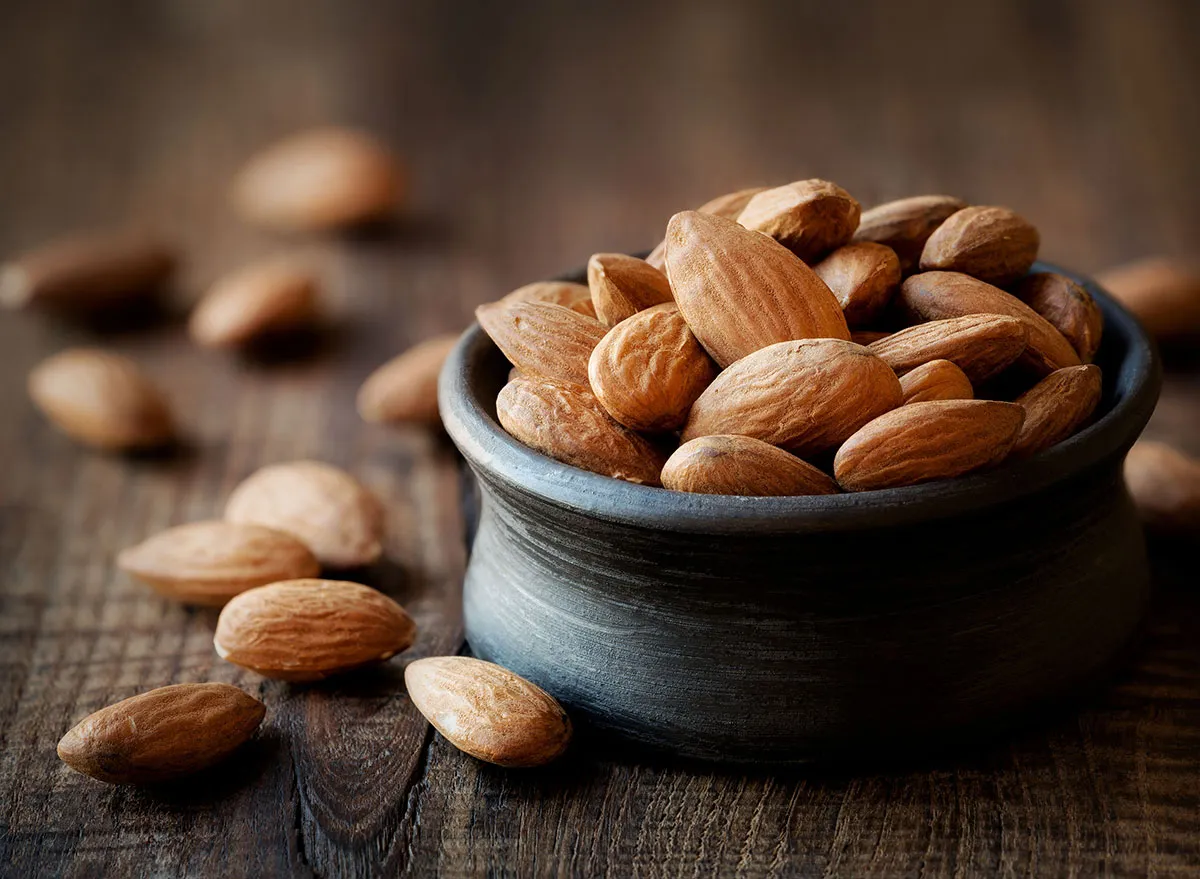
Registered dietitian nutritionist Ashley Larsen, RDN believes that healthy fats from nuts and seeds are the key to keeping a sharp brain and boosting your memory.
"Almonds are high in monounsaturated fats," says Larsen, "which not only help lower cholesterol but can also improve cognitive function as well." Larsen also cited a study of 480 older women, which showed that "those who consumed more monounsaturated fats in their diet over 3 years had less cognitive decline."
Broccoli and other cruciferous veggies
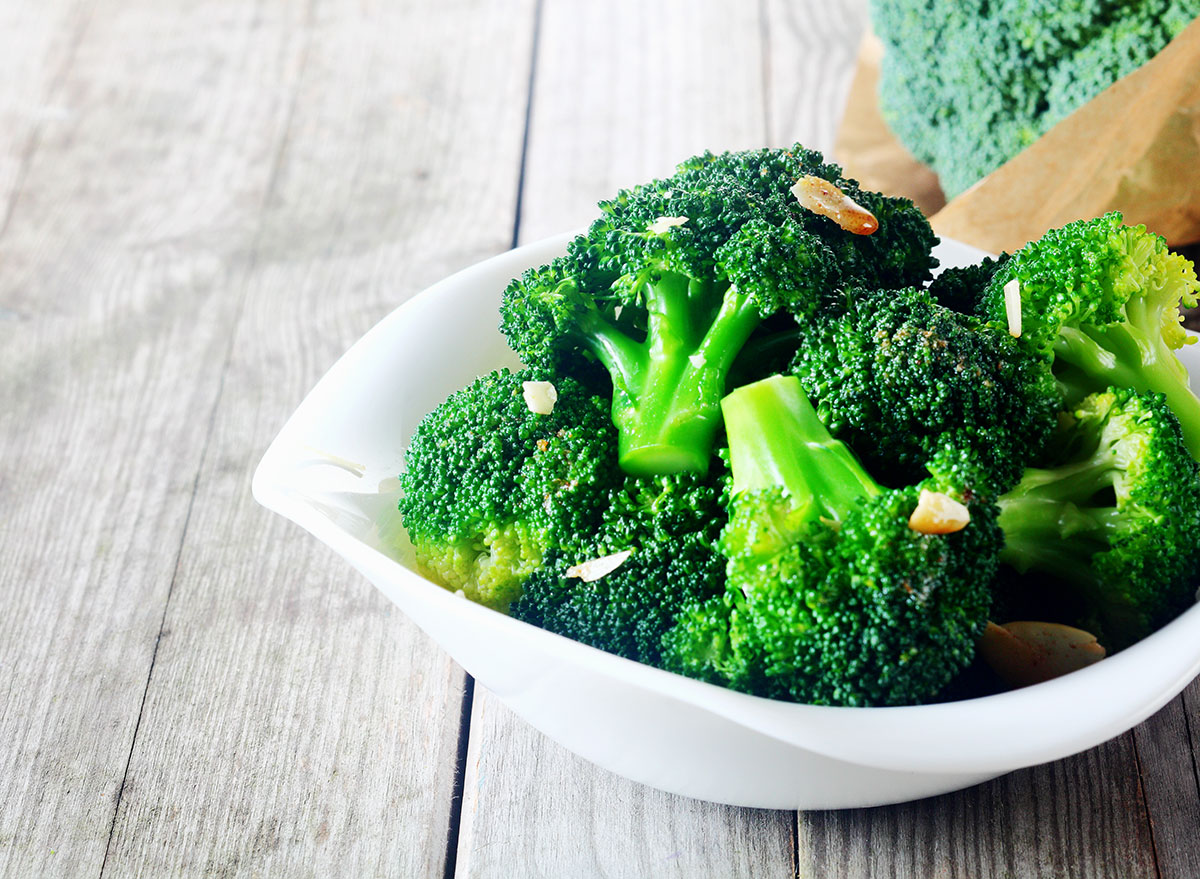
According to Lee Jackson, LDN, RDN, broccoli and other cruciferous vegetables like cauliflower, cabbage, kale, and Brussels sprouts are linked to better memory and improved cognitive function.
"Broccoli is high in sulforaphane, which is an antioxidant that helps to fight against inflammation," says Jackson, "and chronic inflammation has been found to result in memory loss and decreased brain health."
A bonus of broccoli, according to Jackson, is that it is "loaded with fiber, which is important for reducing the risk for certain cancers, as well as helping the body maintain a healthy weight."
Olive oil
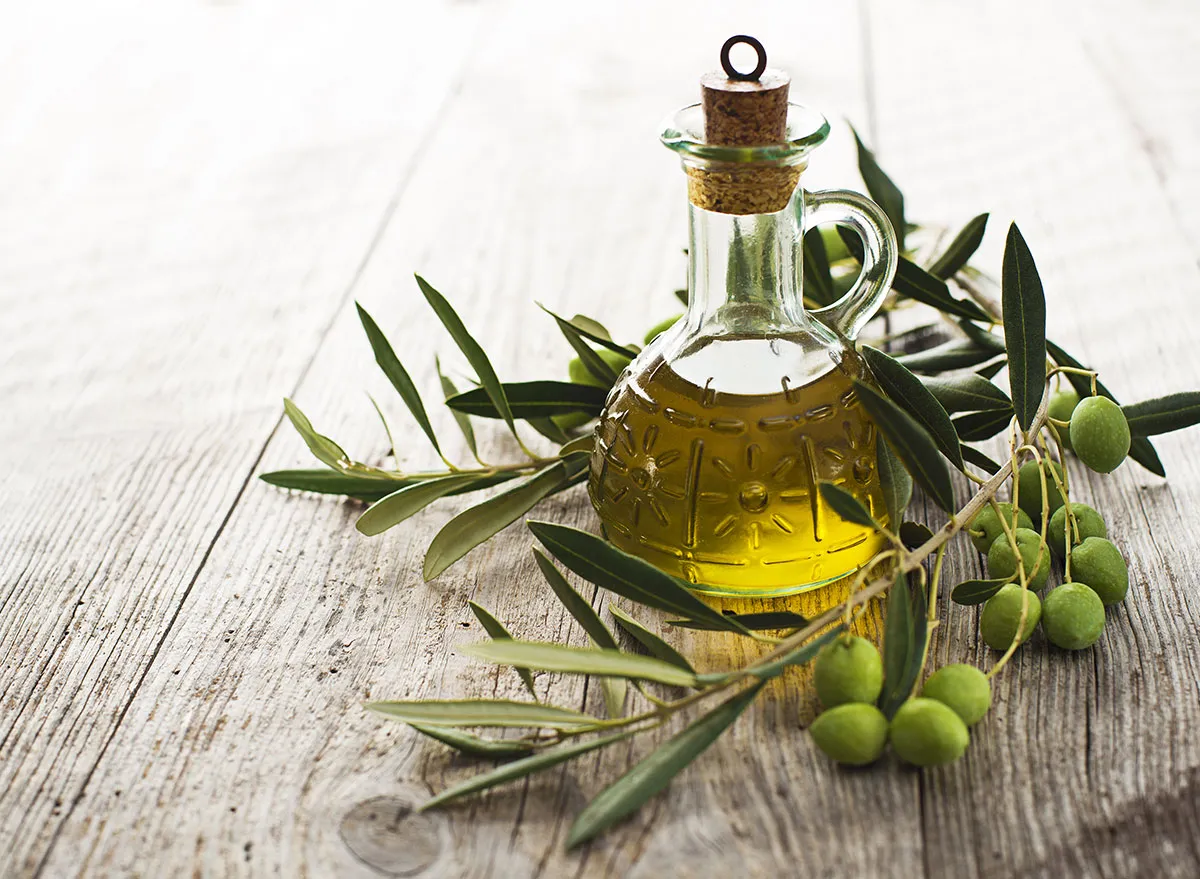
"Swap out your butter or margarine for brain-boosting olive oil," says Larsen, "because olive oil is rich in healthy fats and antioxidants called polyphenols, which help to protect our brain cells from oxidative stress and damage."
Larsen suggests using olive oil when cooking vegetables or meat, or drizzling it on salads or bread.
Surprisingly, you can also use olive oil when making your favorite dessert! You can try something like this homemade chocolate pudding with olive oil and sea salt, or this olive oil ice cream recipe for something sweet and savory!
Read these next:








